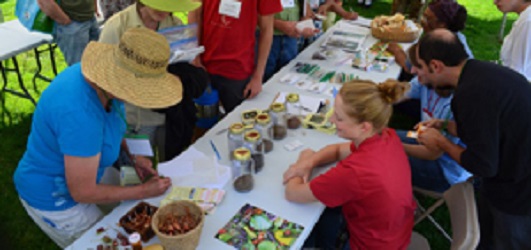What You Need To Know Before Having an Organic Garden
Organic gardening is the art of growing fruits, flowers, vegetables, and ornamental plants by following the essential steps of organic agriculture in conservation and soil building and pest control. Like any other personal ventures we take care of, organic gardening requires you to carry out thorough research and information seeking before starting.
Below we look at some of the essential gardening tips you need to know before having an organic garden in your backyard farm.
Start Small
Since you are a beginner, you do not need to go for a large garden. You have to start small and learn more through the process. 100 or even 50 square feet per person in your household is enough for a start. Most of the gardeners get it wrong by starting too big but end up quitting thereafter. The secret is to start a small garden, learn all the dynamics involved with organic gardening, and you can expand slowly with time. That way, you will never quit. A 50 square feet garden is large enough to produce a lot of food. Instead of planting so many plants, you can plant a few of them and take great care of them. For example, instead of planting 10 tomato plants, you can plant 3 or 4 plants and take proper care of them. A single tomato plant will give you dozens of tomatoes if it is healthy and happy.
Full sun
Full sun will mean that the plants on your garden will have to access light for at least 8 hours. This proper sun access time will mean that your plants will have plenty of light and heat to photosynthesize especially the main vegetables and fruits. This is one of the essential tips you need to put into consideration any time you think of having an organic garden in your backyard farm.
Good soil
The kind of land you have will largely determine the product you get from your garden. You, therefore, need to prepare the best type of soil to have the best organic garden. The basics of developing the best ground for your garden is incorporating a couple of inches of quality compost onto the top few inches, maintaining a 2-4 inch layer of straw or leaf mulch (not wood, stones or bark) and you have to provide adequate quantities of water. This is a crucial factor, and you need to consider it all the time you think of starting an organic garden.
Fertilize
It is important to note that building good soil may take years to accomplish. In the meantime, when you are starting organic gardening, liquid fertilizers are very beneficial. These fertilizers are such as the sea fertilizers and fish fertilizers, and they have a broad spectrum of nutrients as compared to the conventional N-P-K fertilizers that most people commonly use. They usually are used throughout the season, normally once a month.
Microbes
Microbes are just as crucial in your soil as organic matter and nutrients. You have to think about microbes even before thinking of fertilizing. Most of the people interested in organic gardening do not get the information on microbes being one of the essential components in their gardens, and this is, therefore, one of the tips you have to consider when thinking of organic gardening.
Buy plants
You may eventually want to get into producing your own plants indoors and it is a pretty good idea but for a beginner, it is advisable that you buy the plants first. Instead of stocking your place with plants, you can just buy them for the beginning and as you continue gaining more experience in organic gardening, you can produce your own.
Water
This is one of the obvious tips when it comes to organic gardening, but it has to be mentioned all the time because it is essential. You have to water the newly seeded areas daily and the freshly planted areas probably every 2 -3 days to ensure that the new seedlings have sufficient supply of water throughout. By late spring, you can reduce the watering intervals to 1-3 times a week, but the watering should be deep enough to encourage the roots to grow down.
By practicing organic gardening, you will not only be putting healthy food on your table, but you will also be having the widest variety of food on your table.



